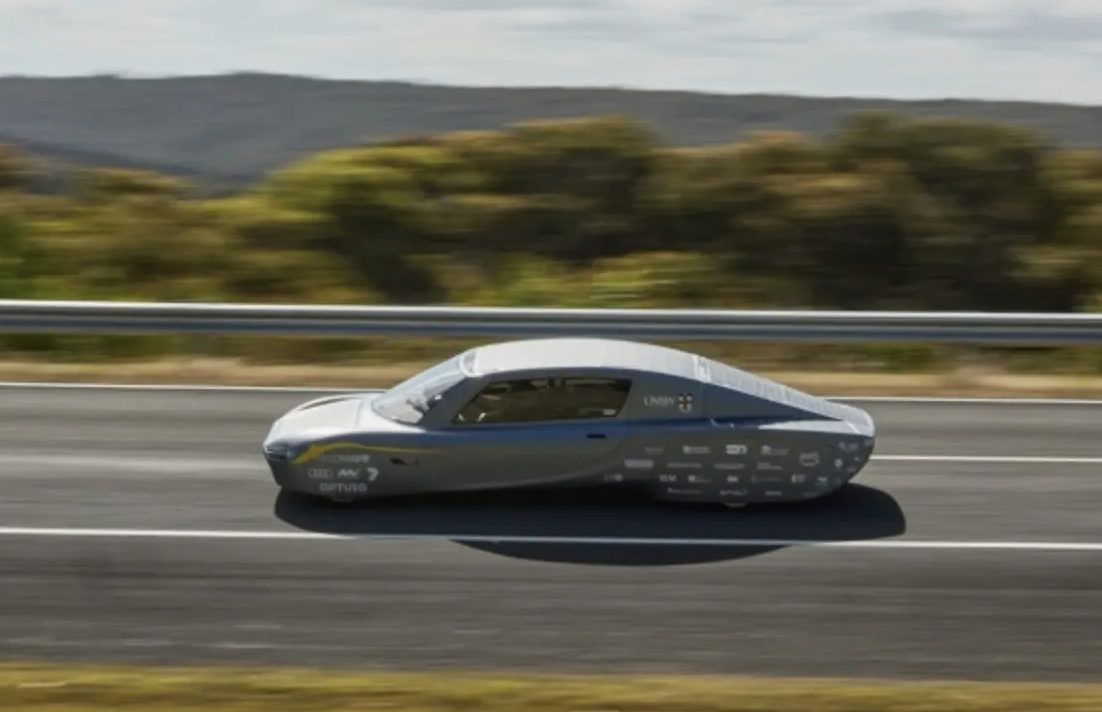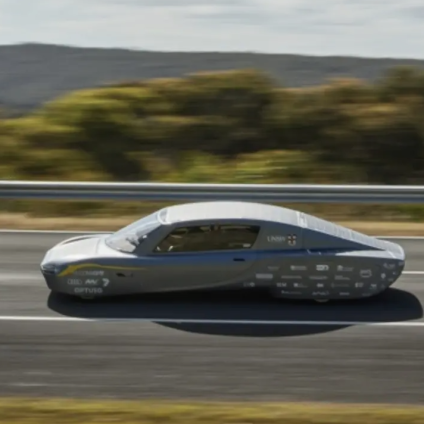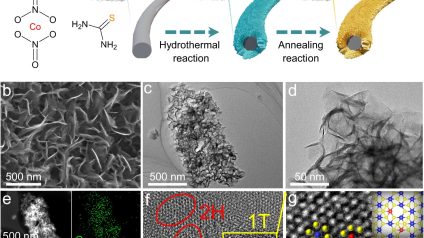The vehicle, designed by the University of New South Wales, covered 1,000 km with a single charge in less than 12 hours
UNSW’s photovoltaic e-car weighs only 500 kg
(sustainabilityenvironment.com) – The fastest solar electric car in the world? On the 1,000 km is Sunswift 7, the experimental vehicle designed and built by the University of New South Wales, Australia. Since 1996, the university’s engineers have been engaged in the construction of photovoltaic vehicles and in recent years have brought home a series of impressive results. The latest is the one recorded on 19 December on the test track of the Australian Automotive Research Centre (AARC) in Wensleydale. Here, without having to recharge, Sunswift 7 has covered 1,000 km in less than 12 hours, thanks to an average speed of 85 km/h. Performance, as insured at the finish by the students who make up the Sunswift Racing team, makes it the fastest solar electric car at this distance and with a single charge. The official record was awarded a few days later, once analyzed and confirmed by a team of experts.
Read also Honda EV presents e:N2, concept model of the 2nd series of cars for China
“Two years ago, when we started building this machine, the whole world was going into lockdown and there were many difficult times,” explains engineer and theme manager Andrea Holden. “But it was so rewarding to see the whole group come together and make so much progress by coming to this incredible point. It took a lot of work, many hours and a lot of stress, but it was worth it. This world record is confirmation of all the effort that all team members have made”.
Features of solar electric car Sunswift 7
As the name suggests Sunswift 7 is the latest in a long series of solar electric cars of the university. The vehicle weighs only 500 kg, or about a quarter of a Tesla. To achieve this lightness, the engineers had to give up air conditioning systems, ABS brakes, airbags, wipers and other essential features for a standard car approved for the road, focused on performance. From the aerodynamic design, to the efficiency of the engines and the entire transmission chain through an incredibly low rolling resistance (0.095).
To break the record Sunswift 7 completed 240 laps of the AARC circuit, equivalent to more than the distance by car from Sydney to Melbourne. The car only stopped to allow a driver change every few hours, plus a tire change due to a puncture.













